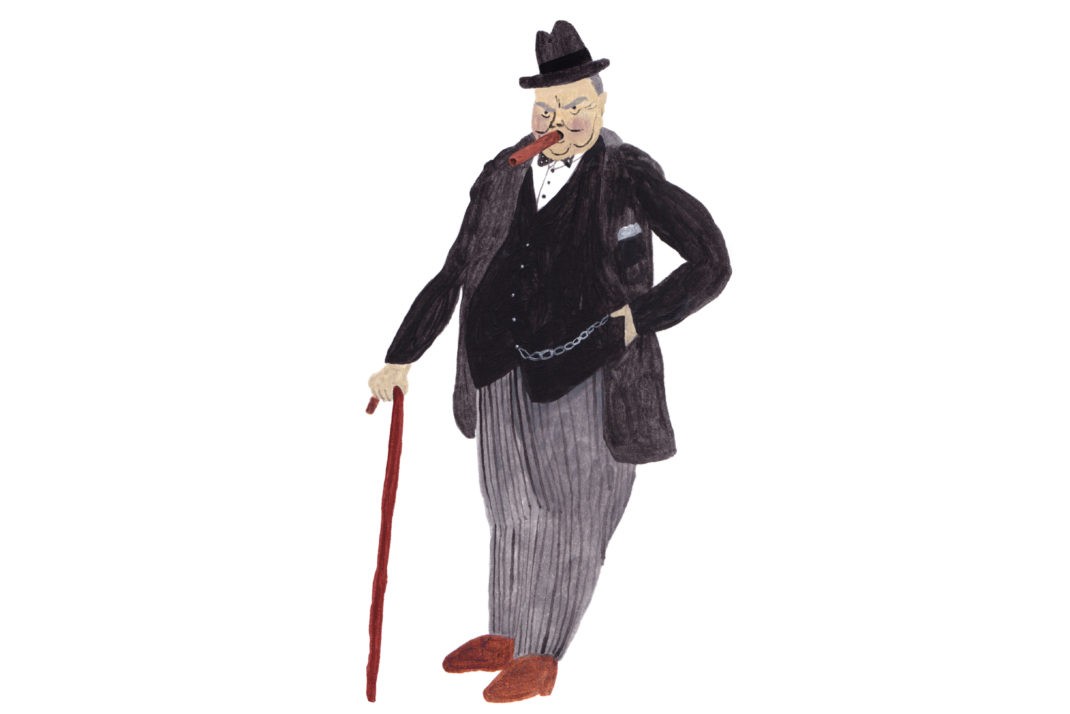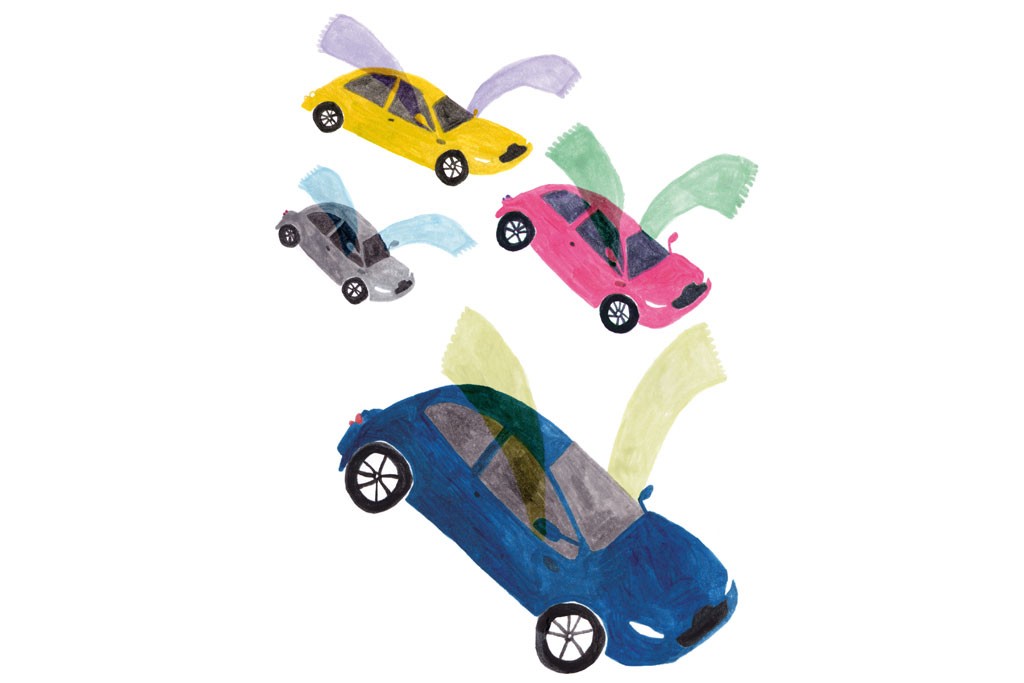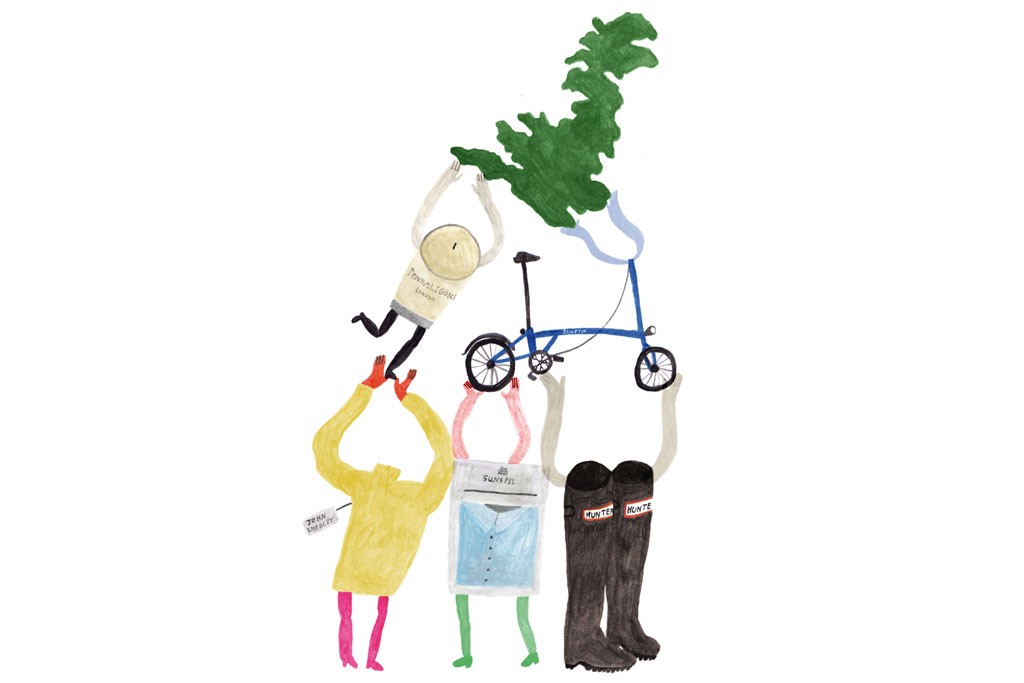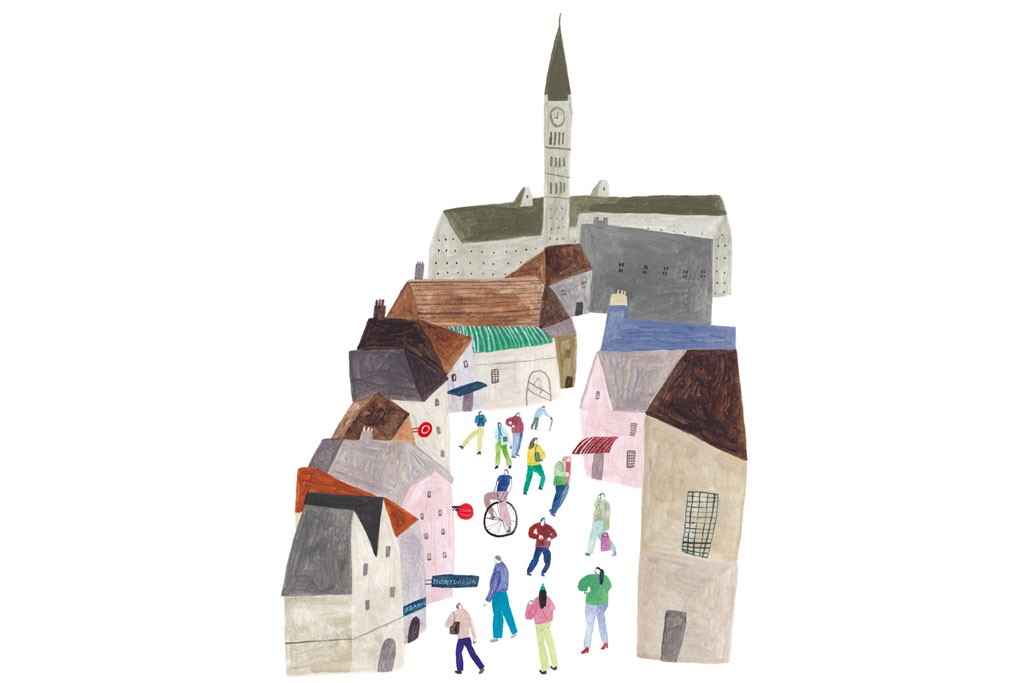The Future of British Luxury: The Brave & the Bold
Michael Hayman on the future of British luxury
This post may contain affiliate links. Learn more
The future of luxury will be ruled by entrepreneurs who are fearless enough to rip up the rulebook and create companies that deliver both profit and purpose. Michael Hayman reports…
Illustrations by Liz Rowland
A love of luxury is one of the often overlooked hallmarks of Britain’s greatest ever leaders, Sir Winston Churchill. Take champagne. His prodigious love of Pol Roger was fortified by a whopping 42,000 bottles imbibed during the course of his life – quite a rate of consumption considering he was only introduced to the brand at the age of 34. Indeed, Pol Roger was to go on to name its top cuvée after the great man, and his daughter Mary Soames said of his tremendous thirst for it: ‘I saw him many times the better for it, but never the worse’.
Nor did his love of luxury stop with champagne. From clothes to cigars, paintings to Provence, he was a leader who knew a thing or two about the finer things in life. ‘Winston is a man of simple tastes – he is quite easily satisfied with the best of everything,’ was the conclusion of Churchill’s political ally and close friend, Lord Birkenhead. Fast forward and you have to wonder how Britain’s wartime hero and fully paid-up bon viveur might live if he was making his way in the UK today. For one, his love of Pol Roger would most likely have been surpassed by Britain’s new wave of sparkling superstars: Nyetimber, Gusbourne and Hattingley Valley, to name but three.
Would he have been a Remainer or a Brexiteer? Both sides claim him as one of their own. This is a man who spoke as convincingly about a ‘United States of Europe’ as he did about a future where Britain and the Continent trod very different paths. Enigmatic, contrary, creative and a disruptor, ever impatient with the ‘just about do’ brigade, he may well have found his calling not in the grey mist of today’s political climate but in the vibrant world of business. For as well as a passion for Brand Britain he also knew much about the belief, guts and what it takes to win – all traits of our most successful entrepreneurs.
Observing how today’s firms can create positive change he would have enthused about the 650,000 business registrations that take place in our country every year. Each one is a vote of confidence in the future and a finest hour for founders and teams with the guts to go for it. He would no doubt have revelled in how inventive and inspiring our greatest businesses have become. But he might also have stood aghast at the power some have accumulated in a world where two-thirds of the planet’s top 100 economies are now corporations.
‘Attitude is a small thing that makes a big difference,’ was his clarion call to those looking to summon up the right stuff in themselves and face a world of change head on. Now as then, that propensity to a positive attitude speaks volumes about the character of the people and businesses alike that win through.
Is the Royal Family the Greatest British Brand?
Character is much on display in the pages of this year’s Great British Brands: enduring and iconic, creative and innovative, it’s an attitude that makes the UK’s top brands some of the most successful in the world – from household names like Aston Martin through to bespoke artisans like Sabina Savage, who transforms her beautiful hand-drawn prints into wonderful scarves. If you’re looking for the feel-good factor then the British success stories in these pages should provide you with an injection of positivity about what it takes to be the very best in business.
But even when you’re the best you face challenges. Take the B-word: Brexit. It has become the all-pervasive metaphor of our national story. At worst, it has reduced us to a single-issue nation that has sucked the joy and optimism out of much of national life. And whether you originally saw Brexit as a shot in the foot or a shot in goal, maintaining a positive mindset has proven to be a Herculean task in the bruising period since the 2016 vote.
It’s an issue that bemuses many who live away from these shores. Why would we want to go it alone? Why wouldn’t we seek safety in the pack? Why not make life easier for ourselves? Irrespective of your view on the decision, these are questions that speak to how we face the future. Central to that is the confidence to create a new chapter in our national story and with it a new generation of opportunity.
No one can say with utmost confidence just what the effect of Brexit will be on British brands. But one thing for sure is that things will change for a part of the economy that has been a proven winner: as exporters to the world. And change is not just the result of political headwinds. It’s social, technological and generational.
Vivienne Westwood for Great British Brands: Exclusive Photoshoot and Interview
For those seeking to navigate through, this is no breeze, it’s a transformational typhoon. Right now, that can make for gloomy reading. Survey after survey shows that the leaders of our strongest companies are concerned about dwindling demand and plunging profits. Domestically, the UK high street is struggling through a painful realignment. From Mothercare and House of Fraser to Thomas Cook, stalwart names of our past are being cast aside to make way for a digital future that has no room for nostalgia. And it’s not just a change of method that is on the move, it’s also a change in attitudes about who we shop with and why. We want to know what a business stands for. More than ever, in a world of doubt, we want to believe before we buy. And with this come not only new obligations but also new opportunity.
In its latest Global Powers of Luxury Goods report, Deloitte asserts that: ‘affluent millennial consumers want their preferred luxury brands to be involved and provide a positive contribution to their ecosystem with practical actions and are willing to pay a premium price for those products that come from a conscious brand.’ Witness the rise of the HENRYs (High-Earners-Not-Rich-Yet), a younger demographic of customer, highly motivated by issues like climate change and the purpose of the brands with which they do business. These are the customers of the future and our brands need to be ready for them. For businesses born in the cloud – digitally native and uninhibited by old legacies – this is the environment in which they were born to thrive.
I spent some time with the Whole Foods founder John Mackey, who spoke of ‘unleashing the heroic spirit of business’. For him that meant finding a purpose beyond profit and using that to motivate employees and customers alike. The former Unilever CEO, Paul Polman, provided a new twist on this with a recent call-out to leaders when he said that what we need is ‘heroic chief executives willing to step up and move outside of the comfort zone and take personal risks’. That bravery speaks to businesses at the top of their game and to how the very best in business not only survive but thrive.
This emerging imperative has provided fertile territory for a generation of businesses that understands the power of purpose and how you can use that belief to build businesses that behave as much like NGO as they do commercial entities. And it’s a theme that has caught the attention of capital, which is following the idea that the markets of the future will depend on delivering profit with purpose.
Heed the words of Larry Fink, CEO of the world’s largest asset manager, BlackRock. He wrote to some of the globe’s most admired brands that: ‘To prosper over time, every company must not only deliver financial performance, but also show how it makes a positive contribution to society.’
Carers, sharers and darers are the businesses of the new era. The carers seek to nurture (think Ella’s Kitchen), the sharers seek to connect (think Zipcar), and the darers seek to rip up the rule book and change the future (think DeepMind). ‘It’s better to be a pirate than to join the navy’ were the words of legendary Apple founder Steve Jobs. These businesses have taken heed, unleashing the swashbuckling spirit of the entrepreneur: adventurer, challenger and disruptor.
It is among our entrepreneurs that you will find the most optimistic outlook about our readiness for what happens next. I chair the entrepreneurs team at the private bank Coutts, which has just completed a major new survey among entrepreneur clients. It showed that two-thirds were optimistic about the UK continuing to be a favourable environment for business. More than 60 per cent said they were positive about the UK economy’s future. And 75 per cent thought that businesses should play a larger role in tackling society’s biggest challenges.
Positivity in mindset and an activist mentality may well be the watchwords for today’s entrepreneurs but they also find roots in a long tradition among great British brands: a country with creativity bursting out of its seams, with style and humour that lifts souls the world over. This attitude is a gentle gift, making people feel special. And in a world full of woes there is opportunity here.
But to do this justice we have to rediscover self- confidence. Believing that we have what it takes to master change is not just a nice-to-have, it’s a must-have. And at the moment we need to find that inner resolve to prosper through this immense chapter of change. ‘Made in Britain’ is a global standard of quality and it stands for integrity, ingenuity and innovation. That hallmark has been built by generations of brilliant businesses and it is a birthright for a new generation.
It’s why whatever happens with Brexit, it cannot be retrospective. It has to be our most forward-looking, open-minded moment as a people. Because there is a bigger challenge at play here than our relationship with the European Union. It is one that speaks to ever more people finding prosperity from change, and ever more businesses rising to the challenge of what it means to be a good business in a troubled world.
If you ever get a chance to visit Chartwell, the historic home of Churchill, you can see the desk where he penned the greatest political prose ever written. At its centre is an unlikely inspiration: a bust of Napoleon Bonaparte. Churchill often celebrated these words of Napoleon, whose biography he had hoped to write: ‘I cannot live without champagne. In victory I deserve it; in defeat I need it.’
Business too is about victory and defeats. But it’s not the fact these things happen, it’s how you deal with them that matters. It’s why this edition of Great British Brands celebrates positivity – and to that it’s well worth raising a glass.




